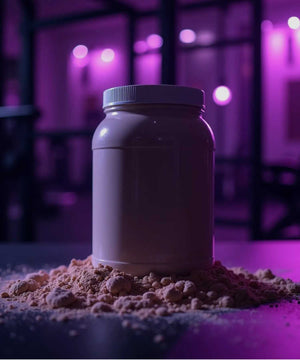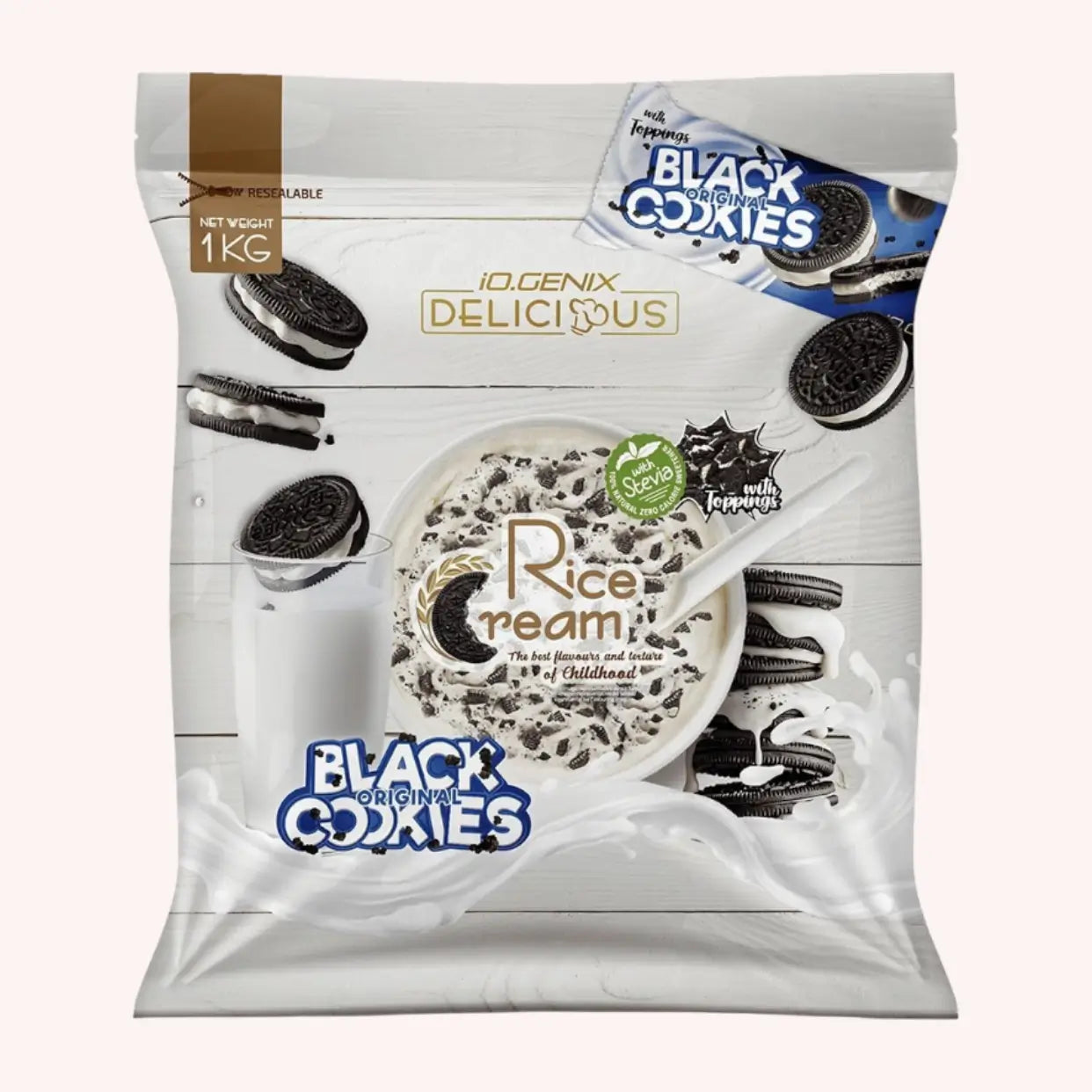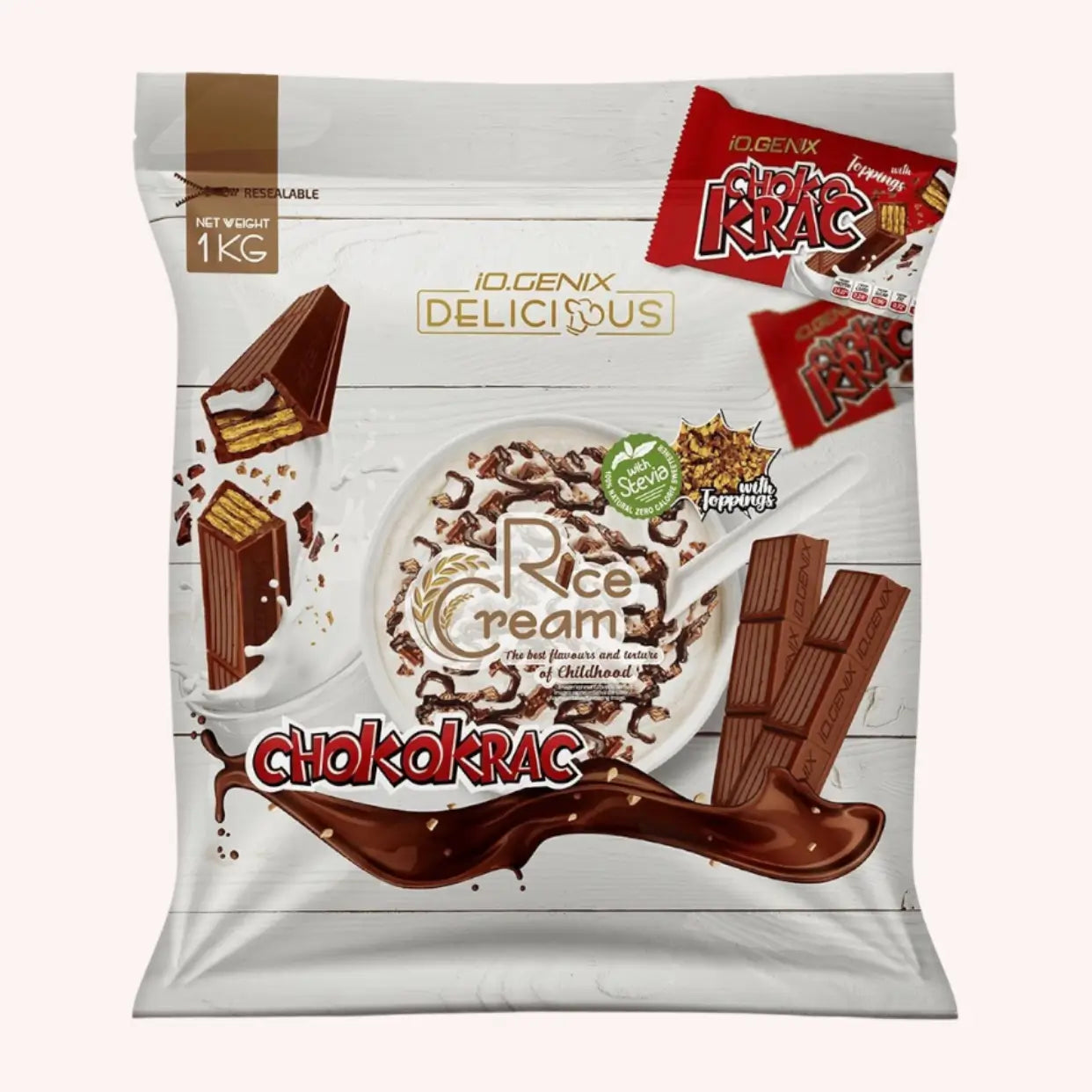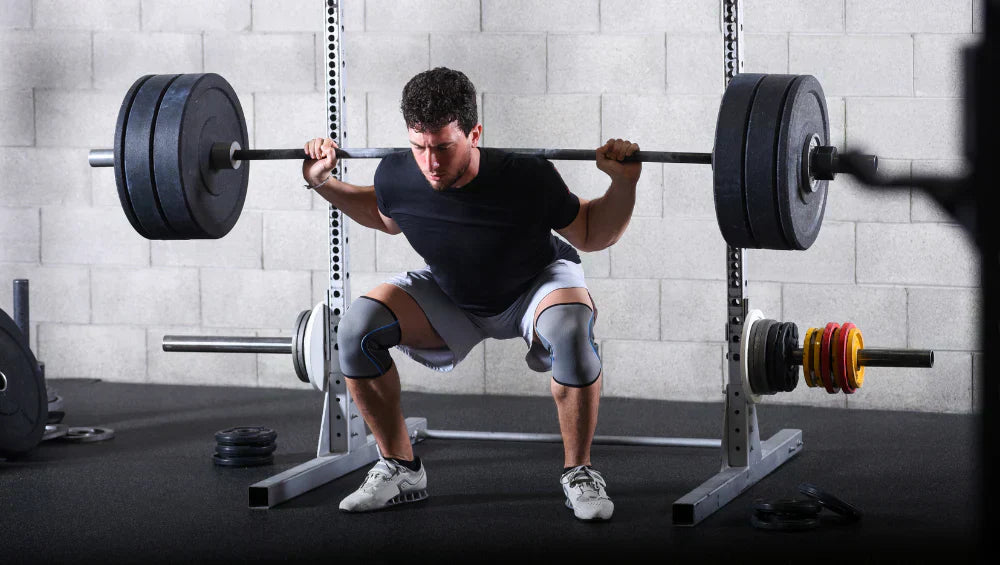Metabolism is central to many physiological processes that regulate our weight, energy, and even our overall well-being. But how can we increase our metabolism to burn more calories and improve our health? If you've ever asked yourself this question, you're not alone. Whether it's to lose weight, improve your athletic performance, or simply feel like your body is functioning better, boosting your metabolism can be an important factor.
What is metabolism and why is it important?
Metabolism refers to the biochemical processes that take place in your body to maintain life. It includes vital functions such as respiration , digestion , blood circulation , and cell regeneration . These processes require energy to function, and this energy comes from the calories you consume through food.
Basal metabolic rate ( BMR ) is the amount of energy your body uses at rest to maintain these essential functions, such as respiration and cell regeneration. On average, more than half of the energy you consume each day is used for these basic activities, which shows how involved your metabolism is in your daily life.
However, metabolic rate can vary depending on several factors, such as age , genetics , muscle mass , and physical activity level . These factors influence the rate at which your body burns calories, whether at rest or during physical activity.
Slow metabolism and fast metabolism
It is important to note that each person has a different metabolism, which varies depending on several factors. Based on these differences, two types of metabolism can be distinguished: fast metabolism and slow metabolism.
- Fast metabolism: A person with a fast metabolism burns calories faster, even at rest. This means their body uses energy more efficiently to perform basic functions. People with a fast metabolism often have an easier time maintaining a stable weight and losing weight because they burn more calories throughout the day, even without strenuous physical activity. A fast metabolism is often linked to greater muscle mass , as muscle burns more calories than fat, even at rest.
- Slow metabolism: In contrast, a slow metabolism burns fewer calories, even at rest. This can make weight management more difficult because the body uses energy more slowly and tends to store more fat. A slow metabolism can be influenced by several factors, including low muscle mass, hormonal imbalance, lack of physical activity, or even a diet lacking in essential nutrients. People with a slow metabolism may have difficulty losing weight and may feel more tired or have less energy on a daily basis.
Why is this important?
Understanding your metabolism is crucial for managing your weight, energy levels, and overall health. A faster metabolism can help you burn more calories, even at rest, while a slower metabolism may require adjustments to your diet and exercise to optimize your energy expenditure. By adjusting your lifestyle, it's possible to influence and improve your metabolism, which can have positive effects on your long-term well-being.
How to recognize a fast or slow metabolism?
Metabolism can vary from person to person, and there are several signs that can help you identify whether your metabolism is fast or slow. Here's a table summarizing the main characteristics of each type of metabolism:
| Characteristic | Fast metabolism | Slow metabolism |
| Weight loss or gain | Easy weight loss even without any special effort. | Difficulty losing weight despite diet and exercise. |
| Calorie expenditure | Burn more calories at rest. | Burns fewer calories at rest. |
| Energy and vitality | High energy and a constant feeling of vitality. | Persistent fatigue, lack of energy in daily life. |
| Appetite | Increased appetite, need more food to sustain energy. | Less appetite, less frequent food consumption. |
| Body temperature | Normal or slightly elevated body temperature. | Feeling cold even in temperate environments. |
| Muscle mass | Tendency to have low body fat and more muscle. | Difficulty maintaining or building muscle mass. |
| Reaction to exercises | Better physical performance, faster recovery. | Slower recovery, sometimes more difficult to follow a sports routine. |
| Influencing factors | Factors such as genetics, an active lifestyle. | Factors such as genetics, a sedentary lifestyle or hormonal disorders. |
Why increase your metabolism?
Speeding up your metabolism can have several positive effects on your health and overall well-being. Here's why it's beneficial to boost your metabolism:
- Weight control: A faster metabolism means you burn more calories, even at rest. This can help you better manage your weight because you're expending more energy on the same daily activities. By increasing your metabolism, you create an environment conducive to weight loss, especially when combined with a balanced diet and exercise.
- Improved body fat management: A boosted metabolism also promotes better body fat management. By burning more calories, your body is less likely to store fat, which can contribute to a reduction in body fat, especially when combined with a high-protein diet and exercise.
- Improved physical performance: A faster metabolism helps process energy more efficiently. This can translate into better performance during exercise, whether for strength training, cardio, or other physical activities. By burning more calories during exercise, you optimize your results and increase your endurance.
- Increased energy: Boosting your metabolism can also have a positive impact on your energy levels. A faster metabolism improves how your body uses nutrients from food, which can reduce fatigue and increase your vitality throughout the day.
How to calculate your basal metabolism (BMR)?
Basal metabolic rate (BMR) can be calculated using different formulas, which take into account factors such as gender, age, weight, and height. One of the most common methods for calculating your BMR is the Harris-Benedict formula, which estimates the amount of energy you burn at rest.
- Formula for men: MB = 0.276 + 0.0573 x P + 2.073 x T - 0.0285 x A
- Formula for women: MB = 2.741 + 0.0402 x P + 0.711 x T - 0.0197 x A
- (MB is expressed in megajoules (MJ); W = weight in kg; T = height in meters; A = age in years)
- The calculated result is given in megajoules and can be converted into calories by applying the following formula: MB = (Value obtained x 1000) / 4.18.
These results give you an estimate of the energy your body burns while resting. However, to get a more accurate estimate of your daily energy expenditure (DEE), it is also necessary to take into account your level of physical activity.
How to adjust MB with physical activity?
To get your total daily energy expenditure , you need to multiply your BMR by an activity factor that reflects your exercise level:
- Sedentary (little or no exercise): MB × 1.2
- Lightly active (no movement and little activity): MB × 1.375
- Moderately active (light exercise 3 to 5 days per week): MB × 1.60
- Very active (standing work and/or intense exercise 3 to 5 days per week): MB × 1.80
- Extremely active (very intense exercise or intense physical work): MB × 2.00
By knowing your total daily energy expenditure (TDEE) , you can better understand how many calories you need to consume to maintain your weight or achieve your weight management goals (lose, maintain, or gain weight).
Calculation example
Let's imagine a 30-year-old woman, weighing 70 kg and measuring 165 cm, who leads a moderately active lifestyle (she does moderate exercise 3 to 5 days a week).
- Calculation of Basal Metabolic Rate (BMR)
Let's use the Harris-Benedict formula for women with: W = 70 kg (weight), T = 1.65 m (height), A = 30 years (age).
MB = 2.741 + (0.0402 x 70) + (0.711 x 1.65) - (0.0197 x 30)
MB = 2.741 + 2.814 + 1.173 - 0.591
MB ≈ 6.13 MJ/day
The result obtained is in megajoules (MJ). To convert it to calories , we use the following formula:
Calories = (MB to MJ × 1000) ÷ 4.18
Calories = (6.13 × 1000) ÷ 4.18
Calories ≈ 1466.50 kcal/day
So, this woman's basal metabolic rate (BMR) is 1466.50 calories per day . That is, the amount of energy her body uses at rest to maintain these essential functions is 1466.50 kcal/day.
- Calculation of daily energy expenditure (DEJ)
To adjust this result for her physical activity level , we need to multiply her BMR (in calories) by an activity factor. Since this woman is moderately active , we use a factor of 1.60 :
DEJ = MB x DEJ
DEJ = 1466.50 kcal/day × 1.60
DEJ ≈ 2346.4 kcal/day
The total calories needed per day to maintain her weight will be 2346.4 calories/day , if she maintains her moderate activity level.
How to increase your metabolism with exercise
The impact of bodybuilding on metabolism
Strength training is one of the most effective ways to boost metabolism. It promotes the growth of muscle mass, which burns more calories than fat. In other words, the more muscle you have, the more calories your body burns, even when you're at rest.
Practical advice:
- Perform strength training sessions 3 to 5 times a week to stimulate your muscles and increase your muscle mass.
- Opt for compound exercises, such as squats, deadlifts, and push-ups, which work multiple muscle groups at once and burn more calories.
The impact of cardio on metabolism
Cardiovascular (cardio) exercise has a significant impact on metabolism, particularly in terms of calorie expenditure. Cardio, whether it's running, cycling, or moderate-intensity exercise (like walking), increases your heart rate and stimulates blood flow, allowing your body to burn more calories during exercise.
Unlike strength training, which increases calorie expenditure during exercise and at rest by building muscle mass, cardio burns calories during exercise and promotes fat loss. It's therefore an excellent complement to strength training to boost metabolism and improve cardiovascular health.
Practical advice:
- Incorporate 2 to 3 cardio sessions per week into your routine, varying the intensity (for example, alternating between brisk walking and running).
- Practice high-intensity interval training (HIIT) workouts, which are particularly effective at burning calories in a short period of time and increasing metabolism for a longer period of time.
Fasting cardio and metabolism
Performing cardio on an empty stomach , especially in the morning before breakfast, is a popular technique for many people looking to increase their energy expenditure. After an overnight fast, your glycogen stores are low, causing your body to rely primarily on its fat stores for energy. This promotes fat burning and significantly boosts your metabolism.
It's important to note that fasted cardio can be particularly effective at optimizing fat burning , but it may not be suitable for everyone. Low-intensity exercise is recommended to avoid excessive muscle loss. Additionally, it's essential to fuel your body well after your workout to prevent muscle breakdown and promote recovery.
Practical advice:
- If you choose to do cardio on an empty stomach, stick to low- to moderate-intensity exercises (e.g., brisk walking, light cycling).
- Listen to your body: Some people may feel weak or tired when exercising on an empty stomach. It's important to tailor this practice to your personal needs. If you experience fatigue, irritability, or dizziness, it's best to stop and consider another approach.
- Consult a healthcare professional if you have any specific medical conditions or are new to this type of practice.
Nutrition: What should you eat to boost your metabolism?
A well-chosen diet is essential to maintain an active metabolism. Certain nutrients play a key role in this process:
Proteins: A powerful ally for metabolism
Protein is particularly effective at increasing metabolism because digesting it burns more calories than digesting fats or carbohydrates. Additionally, a high-protein diet can reduce hunger while preserving muscle mass, an important factor in weight loss.
Practical advice:
- Consume protein at every meal (fish, lean meat, legumes, tofu, whey ) to support your metabolism.
Carbohydrates and Fats: Their Role in Optimizing Metabolism
Complex carbohydrates, found in vegetables, fruits, and whole grains, provide a steady source of energy, which helps maintain an active metabolism. Healthy fats, such as those from avocados, nut butters , and vegetable oils, are crucial for regulating hormones and supporting an optimal metabolism.
Practical advice:
- Avoid refined carbohydrates (white bread, sweets) which can cause insulin spikes, slowing down metabolism.
- Incorporate healthy fats into your meals to support metabolic hormone production.
Hydration: A key factor in metabolism
Water is essential for a healthy metabolism. Even mild dehydration can slow the body's ability to burn calories.
Practical advice:
- Drink water regularly throughout the day, especially if you are active, to replace fluid loss.
- Consume beverages containing caffeine , green tea, or guarana, which can temporarily increase thermogenesis and boost metabolism. These ingredients are often found in fat burner formulations.
The impact of sleep and stress on metabolism
The role of sleep in metabolism
Sleep is crucial for metabolism. Sleep deprivation can impair appetite regulation and slow metabolism, which can lead to weight gain. In contrast, quality sleep helps regulate hunger-related hormones (like leptin and ghrelin) and helps maintain an efficient metabolism.
Practical advice:
- Get between 7 and 9 hours of sleep per night.
- Create a sleep routine with set times and avoid screens before bed.
Stress and its effects on metabolism
Chronic stress can lead to increased levels of cortisol , a hormone that, in excess, can slow metabolism and increase fat storage. Effective stress management, through techniques such as meditation, yoga, or even outdoor walks, can therefore help maintain a fast metabolism.
Practical advice:
- Practice stress management techniques such as deep breathing, walking, or meditation.
- Take regular breaks to relax and avoid cortisol spikes.
Mistakes to avoid to avoid slowing down your metabolism
While there are many ways to boost metabolism, it's equally important to avoid some common mistakes that can slow it down.
Skipping meals: Skipping meals can slow down your metabolism as your body adopts an energy conservation mechanism. It can also increase your appetite and lead you to overeat later.
Overly restrictive diets: Extremely restrictive diets can lead to muscle loss, which slows down metabolism. It's essential to follow a balanced and sustainable diet that supports your muscle mass while reducing body fat.
Conclusion :
Increasing your metabolism is a complex process, but with the right strategies, you can maximize your chances of achieving lasting results. By combining strength training , a balanced diet , hydration , and good sleep and stress management habits , you can improve your metabolism and achieve your health goals.
Remember that patience is key and lasting change takes time.
Sources:
- Pesta, D.H., & Samuel, V.T. (2014). A high-protein diet for reducing body fat: mechanisms and possible caveats. Nutrition & Metabolism, 11(1), 53. DOI: https://nutritionandmetabolism.biomedcentral.com/articles/10.1186/1743-7075-11-53
- Vasim, I., Majeed, C.N., & DeBoer, M.D. (2022). Intermittent Fasting and Metabolic Health. Nutrients, 14(3), 631. DOI: https://www.mdpi.com/2072-6643/14/3/631
- Hursel, R., & Westerterp-Plantenga, M.S. (2013). Catechin- and caffeine-rich teas for control of body weight in humans. The American Journal of Clinical Nutrition, 97(5), 1006-1016. DOI: https://www.mdpi.com/2072-6643/14/3/631













